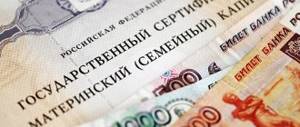Tax when buying an apartment from relatives
There are two ways to become the owner of a close relative’s apartment during his lifetime:
- buy - and lose the right to a tax deduction;
- accept as a gift and take advantage of the tax benefit that exempts you from paying personal income tax.
In the latter case, the rules of civil and tax law provide relatives in the descending and ascending lines with additional preferences. Thus, property received free of charge must be declared. In this case, the donor bears the costs, and the recipient receives, from the point of view of the Tax Code of the Russian Federation, income taxed at the standard rate for residents - 13%.
However, parents of parents, parents themselves, spouses, children, grandchildren and siblings entering into a gift transaction are exempt from having to pay tax.
Thus, a father-in-law who gave his son and daughter-in-law ½ of an apartment each exempts the former from additional transfers to the budget. Whereas the daughter-in-law is obliged to report for the gift in the next calendar year and contribute 13% (or 30% for non-residents) of the cost of the object, calculated independently, to the treasury. Attention! Refusal to receive a tax deduction from relatives is associated with the possibility of influence of family relationships on the value of the object. However, even if the apartment is sold by the father of his daughter at the average market price, the Federal Tax Service will issue a decision on refusal and will not reimburse personal income tax.
Who can apply for a tax deduction?
When applying for a tax deduction when purchasing an apartment from a relative, the following conditions must be met:
- the buyer is a resident of the Russian Federation;
- his income is officially confirmed;
- the employer regularly contributes 13% of his earnings to the budget;
- personal or borrowed funds were used for the calculation;
- the relative-seller is not included in the exclusion circle.
Peculiarity! The amount of government subsidies used will be deducted from the cost of the property under the contract: maternity capital funds, federal programs of assistance in purchasing housing for certain categories, etc.
Who is not entitled to a property refund?
Tax benefits will not be provided to the buyer of real estate in the following cases:
- he was absent from Russia for a long time (more than six months);
- he does not have an officially confirmed source of income;
- the employer did not contribute to the budget or used a different rate when withholding personal income tax;
- payment for the contract was made entirely with funds from the state budget or the employer;
- There is a close family relationship between him and the seller.
Interesting! The Federal Tax Service may refuse to deduct if the parties to the agreement are, for example, a mother-in-law and a son-in-law. The property becomes the joint property of the spouses, one of whom is a close relative of the seller. This can be avoided by concluding a prenuptial agreement that confirms the daughter’s renunciation of proprietary claims to the square meters purchased by her husband.
Purchasing housing from relatives not under a sales contract and property deduction
Clause 5 of Art. 220 of the Tax Code of the Russian Federation contains a restriction on receiving a tax deduction when purchasing an apartment/house from relatives only in relation to purchase and sale transactions. According to the regulatory authorities, when purchasing housing not under a purchase and sale agreement, but under another agreement (for example, an agreement on assignment of the right of claim), the deduction cannot be denied (Letters of the Ministry of Finance of Russia dated August 21, 2014 N 03-04-05/41883 , dated 03/07/2013 N 03-04-05/4-194, dated 12/12/2012 N 03-04-05/4-1390, Federal Tax Service of Russia dated 02/11/2012 N ED-3-3/ [email protected] ).
Example: The father entered into an agreement for shared participation in the construction of housing and paid for the apartment. Later, the father sold the apartment to his son under an assignment of claims. The transfer of funds to the father was recorded in the receipt. After signing the acceptance certificate for the apartment, the son submitted documents for deduction to the tax office. Despite the fact that a deal was concluded between father and son, a tax deduction will be provided to the son (since the restriction on receiving a deduction in transactions with related parties applies only to purchase and sale agreements).
A personal consultant will fill out a declaration for you for 3% of the deduction amount
Last update 2019-01-07 at 11:25
A taxpayer who pays tax on income (except for dividends) in the territory of the Russian Federation at a rate of 13% has the right to receive a property deduction in the amount of up to 2,000,000 rubles if he acquires ownership of housing with his own funds or borrowed funds. Some categories of citizens listed in paragraph. 3 tbsp. 224 of the Tax Code of the Russian Federation, although they receive income taxed at a rate of 13%, cannot receive such a deduction.
However, sometimes the question arises: “ Is it possible to get a tax deduction when buying an apartment from relatives?”
To answer it, it is necessary to understand first of all who, for tax purposes, the legislator classifies as relatives or, as the Tax Code of the Russian Federation says, interdependent persons.
According to clause 11, part 2, article 105.1 of the Tax Code of the Russian Federation, the following are classified as interdependent persons:
- wife husband);
- parents (adoptive parents),
- children (adopted),
- full and half (when the same father or mother) brothers and sisters,
- guardian and ward.
The transaction between them is considered to be concluded under the influence of dependence, which affects the price of the purchased residential premises up or down.
In addition to the purchase and sale transaction, other transactions can be signed, including between relatives, and tax legislation regulates the resulting legal relations in different ways.
How do they know that the home has been sold by their parents?
The Federal Tax Service does not have a special methodology for determining the degree of relationship between the seller and buyer of real estate. The inspector makes a decision based on the totality of the collected data:
- comparison of names and places of registration;
- request to the civil registry office;
- written confirmation or refutation from the buyer, etc.
Concealing the fact of purchasing an apartment from a relative in order to obtain a tax deduction is quite simple. However, this is an illegal act and is fraught with charges of illegal enrichment with all the ensuing consequences.
One of the legal ways to get around the obstacle is to use other transaction formats. Thus, the ban is imposed only on sales contracts. The assignment of rights of claim does not fall under this rule. This means that having purchased an apartment under a shared participation agreement, the father has the right to assign it to his son. The latter will be able to legally claim a tax deduction after signing the transfer and acceptance certificate.
How will the tax authorities discover that housing was purchased from relatives?
The most frequently asked question among citizens who want to receive a tax deduction when purchasing real estate from relatives is the question of how the tax office can find out that the seller and buyer are related. The tax authorities do not yet have unambiguous and guaranteed methods for detecting this fact. Tax inspectors compare various data (for example, last names, places of registration), check data against the databases of civil registration authorities, and may also ask the buyer-taxpayer to write a written confirmation that he is not related to the seller.
Read more: Letter of payment guarantee with payment schedule
Although sometimes citizens manage to hide the fact of kinship from the tax office and receive a deduction, it should be noted that this is not legal, and if the hidden fact is subsequently discovered, it will be necessary to return the deduction in full.
Deal between relatives before 2012 and after
Until 2012, tax legislation was based on the rules for determining kinship and property, enshrined in related branches of law by directive documents. Among them:
- Family Code of the Russian Federation;
- Civil Code of the Russian Federation;
- All-Russian classifier of information about the population.
The circle of persons from whom the purchase of an apartment automatically deprived the right to a tax deduction was comprehensive and included all possible degrees of kinship. Grandchildren, grandmothers, great-grandmothers, nieces, aunts, cousins, stepfathers, stepchildren, in-laws were all subject to the exclusion rule. Concluding a deal with one of them was deprived of the tax benefit.
For transactions concluded since the beginning of 2012, the provisions of Article 105.1 of the Tax Code of the Russian Federation apply. The list of interdependent persons is limited to the following relatives:
- spouses;
- parents and adoptive parents;
- children (natural and adopted);
- brothers and sisters;
- guardians, trustees and their wards.
Important! The court may expand this list based on a claim from the tax service. However, in practice, the Federal Tax Service does not look for additional reasons for refusing a deduction on this basis - a transaction between related parties.
What kind of family ties are deprived of the right to deduction?
Citizens who are to the seller are deprived of the right to a tax refund:
- legally married spouse;
- parents or guardians;
- a natural or adopted child;
- sibling or half brother or sister.
When drawing up a contract for the purchase and sale of a house, apartment or other category of real estate with one of the listed relatives, you must be aware that a tax deduction will not be made.
Often relatives purchase housing from each other for economic purposes:
- replace the gift agreement with a purchase and sale transaction, without seeking to enrich themselves;
- they can carry out such transactions with the aim of illegally obtaining profits at the expense of the state.
The presence of family ties between citizens is not a reason to change the terms of registration of various transactions between them, however, they are deprived of the opportunity to return a tax deduction even if a real financial turnover has been made.
Regardless of the category of housing being purchased (individual ownership or shared ownership), tax deductions are not paid when purchasing an apartment from parents or other direct relatives. This is explained by the fact that the outcome of the economic transaction does not meet real conditions; the seller often sells the property much lower than the market value.
Tax deduction amount
The amount of the tax deduction does not depend on the degree of relationship and relationship between the seller and the buyer, but is determined by the costs incurred:
- for the purchase of living space – no more than 2 million rubles. own or credit funds;
- for finishing of premises - if the contract expressly states that the object is transferred to the new owner without finishing;
- to pay off interest on the loan - no more than 3 million rubles. upon payments made.
The above restrictions apply to legal relations arising from 2014. Previously, the amount of tax deduction for credit interest was not limited. For transactions completed before 2008, the maximum benefit amount was 1 million rubles.
Spouses who purchase real estate as joint property without allocating shares can double their personal income tax refund. In this case, each of them can claim the maximum deduction in relation to the same property.
What documents will you need?
To receive a tax deduction for an apartment, you need to collect a package of documents:
- declaration 3-NDFL,
- income certificate 2-NDFL,
- application for deduction
- copies of passport and documents for the apartment.
You can choose where to receive the deduction: at work monthly with your salary or once a year to your current account. You can get a deduction for several apartments, but the amount is not more than 260 thousand rubles.
Tax return 3-NDFL
The tax office gives three ways to fill out 3-NDFL, choose any:
- download to fill out by hand,
- fill in electronic form,
- download the assistant program to your computer (Windows only).
Fill out, print, sign and bring to the tax office in person.
Certificate of income in form 2-NDFL
This certificate will be given to you at work in the accounting department. If you worked in several places, certificates will be needed from all employers.
Application for deduction
In it, indicate the account details to which the tax office will transfer the money. It can be filled out at home or at the tax office. When submitting documents, the inspector will check the application and, if he finds an error, will tell you how to fill it out correctly.
Copies
Prepare documents and make copies of them:
- Passport.
- Participation agreement.
- Payment order if someone else paid for you.
- Payment receipts if you paid yourself.
- The act of acceptance and transfer of the apartment.
- Certificate of registration of ownership or an extract from the register.
If you have a mortgage, add three more to them:If you have a mortgage, add three more to them:
- Mortgage agreement.
- Payment schedule.
- Certificate of accrued interest on the mortgage.
If the apartment was bought by spouses as joint property, the tax office still needs to submit an application for determining the shares and a copy of the marriage certificate.
If the spouses’ DDU indicates which share of the apartment belongs to whom, an application for determining the shares will not be needed.
If you receive a deduction for a child, prepare a copy of the birth certificate and an application for determining the shares.
If the price of a new building is less than 2 million rubles and you had finishing expenses that you want to include in the deduction, you need documents for them.
Copies of documents must be certified. On each page of copies write “Copy is correct”, sign with transcript and date. There is no need to go to a notary.
Take the originals along with the copies. The tax inspector will verify the documents and take copies.









